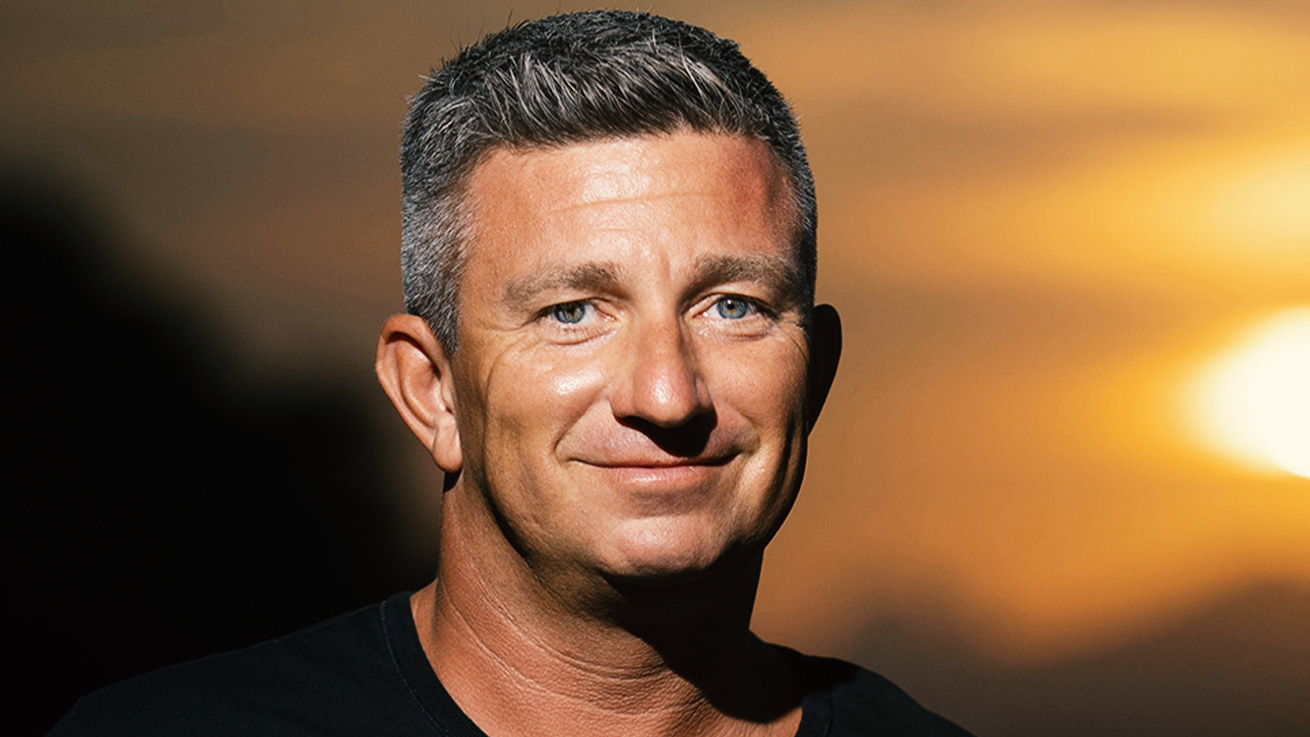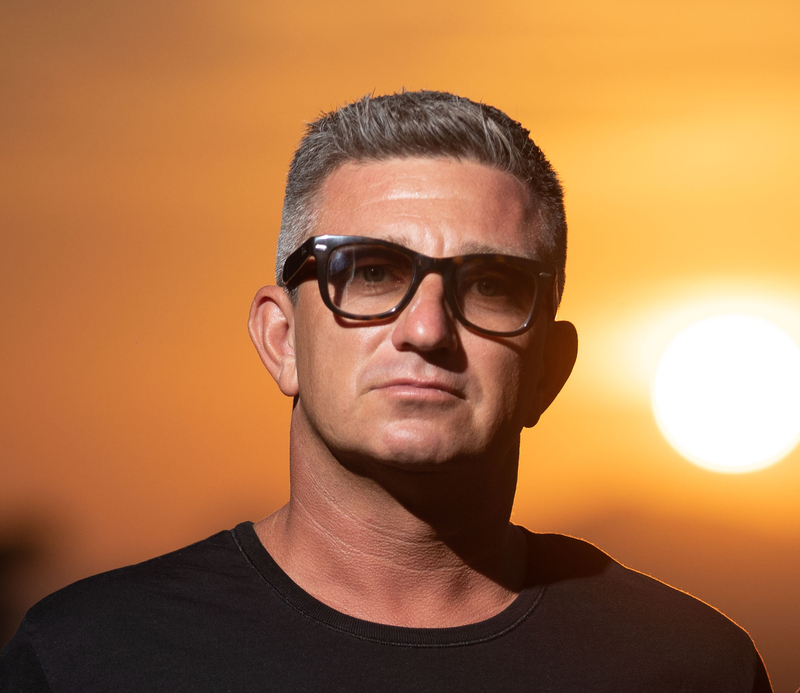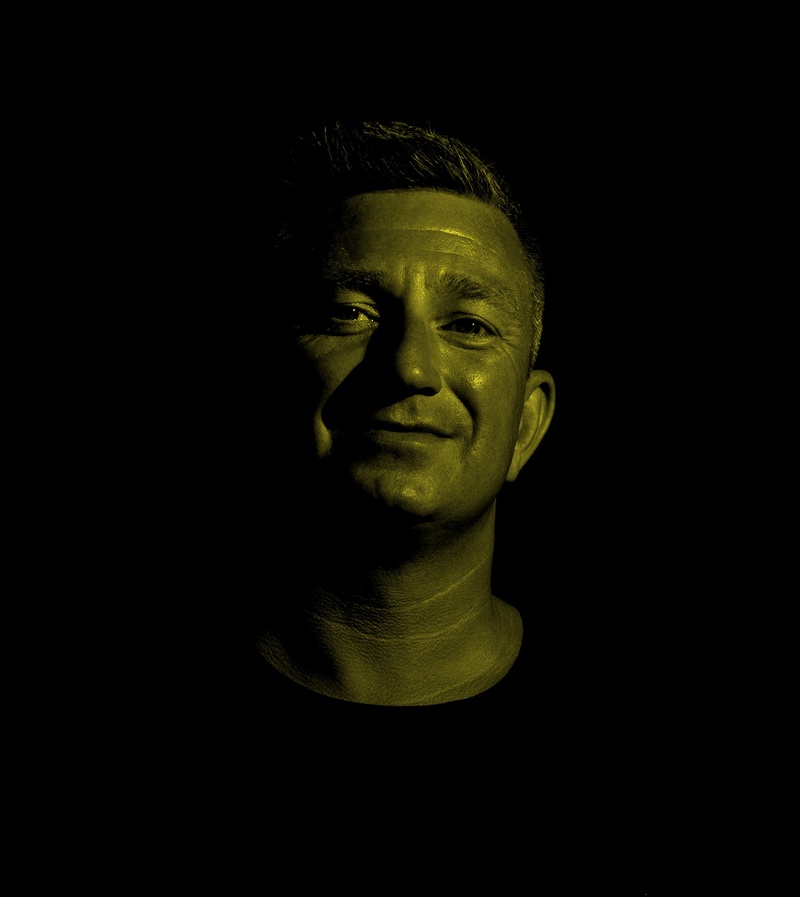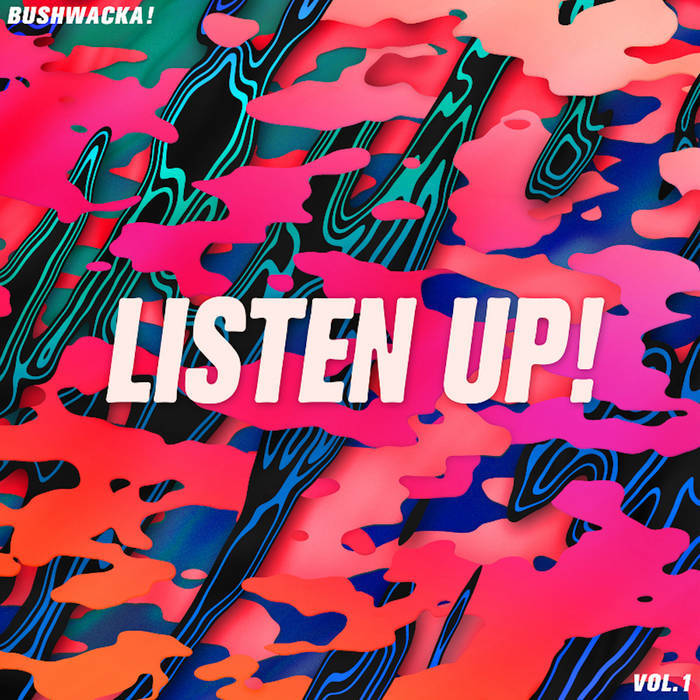Blog
Bushwacka! – I have Two Rules: How Does it Make you Feel? And What Does it Sound Like?
15 May '2020
In the wake of his recent Tech Breaks sample pack, we caught up with DJ and producer Bushwacka! to discuss some of his creative techniques and inspiration and dive deep into his musical history.

Do you have a setup at home you can still use?
I do, I’ve got a writing suite rather than a big recording studio. I moved to London a year ago and got a space – there was a big room that I could have made into a recording studio, but I actually chose the very small room and downscaled the operation. This is a writing suite because I knew I wasn't collaborating with people in the building.
Also because my partner does sound therapy, it was more productive for us to have the bigger room as a therapy room, which includes crystal balls and Tibetan bowls and a meditation space for psychotherapy practice itself. So I've got a small writing room at home now. But essentially it's everything I need.
You’ve just released the Bushwacka! - Tech Breaks sample pack. Did you know what you wanted to make for this in the first place, or did you just make loads of stuff and then curate it?
Actually, I didn't in the first place – I really didn't. It took me quite a long time to get started, to get my head around how I wanted to do it and what exactly I wanted to do. The process was a two-fold process for me, initially I was sifting through lots of hard drives of arrangements and productions that I had worked on over the years. Some of them fairly recently, maybe 2017-2019, but then trying to go back as far as I could.
I was looking and listening to individual aspects of those arrangements, and when I heard things that I'd written that I liked or thought I could use – whether it would be melodies or bass sounds, old drum loops or sound effects – I would bounce those out of those arrangements and I set them aside for further processing and decision making.

The second part of the process was writing new stuff – new beats arpeggios, basslines… lots of that I did with my Akai MPC Touch, which I really, really liked for throwing beats together. I kept it pretty raw. In terms of processing, I didn't go too deep into intricacies. It was more about the feeling that I was creating in these pieces. I particularly got into some of these electronic kinds of beats and had fun with that.
Then with some of the arpeggios, and music lines, I kind of veered more towards messing around with things like my Dave Smith Poly Evolver and a really ancient bespoke handmade analogue sequencer that I've got plugged into my Moog.
I see people that have spent ten, twenty, thirty, forty grand on all this modular stuff, and they spend four hours getting a farting noise to come out of the speakers.
Are you mostly using hardware samplers and synths rather than software, or is it a mix?
It's a bit of a mix. You always see this sort of mentality that everything sounds better if it’s analogue, but I’m over that fantasy now.
Thank god I didn't go down that route because it's such a bottomless pit, everyone said modular was the way forward. Just slightly going off on a tangent, but it's almost quite funny. I see people that have spent ten, twenty, thirty, forty grand on all this modular stuff, and they spend four hours getting a farting noise to come out of the speakers... OK, so it's a great sounding fart noise, but, you know…
So I'm coming more from the school of ‘If it sounds good, use it’. Whether that's coming from a software synthesizer, or whether it's coming from one of my pieces of outboard gear that I've processed on the way into the recording through the UAD plugins or whether it's something that’s been processed with some effects inside the DAW. To me, it's really just about what it sounds like. I have two rules: how does it make you feel? What does it sound like?
How long did it take you to make the sample pack?
It took quite a long time, especially digging through the old stuff. Writing the new beats and stuff was a gradual process because I was touring while I was doing it as well.
I could get into my studio space and write beats, I would go through having bursts of energy where I'd beat up the Akai and throw in lots of different drum sounds and drum libraries and start building beats and rhythms then play around until I made something that I really liked. Then just bounce it down and record it and then continue.

Some of the loops I have done a bit more intricate processing, but I didn't go too deep with that. I quite like it when I'm working on productions, and I'm using libraries, particularly with newer stuff, I like stuff that's got a bit of space around it, so I can add the intricacies if I want to, rather than wishing that I could take them away. But I guess it's horses for courses.
Was there anything that you found particularly challenging when making it?
Maybe what held me back a bit was comparing it to what other people have done, I had to let go of that sort of unhealthy mentality of “It needs to sound like this”, or “Why doesn't it sound like that?” I had to just embrace the fact that what I've done has come from me, from my art. I’m not trying to make the hook line that's gonna be the next number one hit, because that's kind of not really the producer that I am.
Also being able to tell myself, these are tools for someone else to go make their music from, you're not presenting 1000 finished tracks, you're presenting a selection of tools, to inspire and enable people to go away and be creative and to manipulate and do what they want.
Your sample pack has quite a futuristic vibe, where do you find your inspiration?
It's just what sounded good to me. I always found electro shows to be inspirational, I'm not talking about cheesy electro house, I'm talking about, 80’s stuff, like Afrika Bambaataa, Egyptian Lover, those sounds, and the effects on the 808s, and the kind of mad synth stabs, all that stuff to be really quite futuristic. You think of Juan Atkins and Cybotron - Clear.
That's what I love about sampling breaks is that you’re importing this soul and passion that's been played by talented musicians, then putting that into your track
I'm aware of having written a pack full of electro sounds, but I like those sounds. Also when it comes to the kind of breakbeats, in its essence, either James Brown and Bobby Burns and all these amazing drummers that are being captured on old records from the 60s and 70s that are sampled and turned into something.
That's what I love about sampling breaks is that you’re importing this soul and passion that's been played by talented musicians, in an amazing studio with great microphones and beautiful amplifiers on an old analogue desk with valve amps, then putting that into your track. I'm not going to try and make those breakbeats from scratch - I'm programming on a computer, I want to use that as my backdrop, but I don't want to try to recreate it because, without wanting to diss myself, I can make great beats and grooves and funky stuff, but I'm not that guy. I'm the guy that can get off on those things and turn them into something usable and playable.
It’s easy to hear how involved with rhythm you are in your samples, I heard you played percussion in an orchestra at some point?
Yeah, I was a percussionist in the London School Symphony Orchestra from about the age of 14. So I was classically trained. I used to go to a Saturday school called the Center for Young Musicians in Greenpoint, Pimlico, I was learning the piano, I had to be in the choir, which I hated, I learned the trumpet and then the drums, the drums were my thing, then I joined the orchestra. I became one of the two percussionists in the orchestra. They end up taking a week out of school and going to a university campus and playing with young people, learning these classical pieces.
At the end of it we were performing at Kenwood Lakeside, or the Royal Festival Hall or the Barbican. It was the most amazing experience of my life and it really taught me about counting out space between sounds and about dynamics. I really learnt how important dynamics are, a lot of people program their drums all at the same velocities and everything's quite linear, or, as they call it “cookie-cutter” these days. There's nothing wrong with a basic rhythm but they say House is a feeling, Techno’s a groove, you have to think about what it is that you want to create, and for me, it's about dynamics

I learned a lot about the dynamics of the orchestra. If you play the right sound at the right time at the wrong volume, it doesn't work. If you play the wrong sound at the right time at the right volume, it doesn't work. With electronic music, you can mess with those. The point I'm trying to make is a lot of people don't have those fundamentals as a sort of inbuilt guideline to creating rhythms.
Is there any advice you'd give to your younger self? Anything you would have done differently?
Oh, that's a big question... I mean, the truth is, I wouldn't have taken it. I don't think I was really taking advice.
When I was a young kid, I didn't have that much confidence, but I worked really hard, I put the hours in. I guess any advice I would have given to my younger self would be, go and do all the things you're doing, have fun, enjoy it, work hard, but try to think about those rainy days where you haven't got any work.
Maybe try and be a little bit sensible and be prepared for the quiet times as well. Because that's something that has been difficult over the years.
Future-proofing yourself. The lifestyle wasn't sustainable, I partied hard, I worked hard, I played hard. But that wasn't sustainable. So it's really about taking self-care. I think a lot of people overlook that. People don't give themselves a break.
Have you done anything with Loopcloud before? Do you use Loopcloud yourself?
Yeah, I think the concept is absolutely fantastic, an online library where you can download samples on a per-sample basis rather than having to buy the whole pack is massively useful. The integration with DAW’s makes it so easy and fast to use. No more hunting through sample CDs, you can just look for the specific sounds you want.
What are your future plans? Are you working on anything cool? Any releases coming out soon?
Actually I've got some huge projects going on.
The first thing is I've got two double albums coming out, on vinyl and digital. One's coming out in May and the other is in production. It’s called Listen up, Volume 1 & 2. They are retrospective compilations of works I've produced and released from years ago. Each volume has eight releases on it that came out from 1995 onwards.

I’m also currently working full steam on setting up my new company which is called Listen Up Therapy, which aims to provide counselling, psychotherapy and meditation sessions for people within the music industry which I'll be launching later this year. Originally the concept was online psychotherapy and counselling services, and meditation classes for people that work unsociable hours, like film, TV, media, entertainment, music... people that are touring or just can’t be in someone's office at 11 o'clock every Tuesday.
It’s with my partner, she's been to India 19 times in the Ashram with the Masters, who were part of the lineage of Osho. She's done 18 levels of meditation in that lineage. She does online classes, one to one and group classes. She was doing classes in London, combining electronic music with movement and meditation. She wires up her blood to transmit electronic signals which converts to MIDI controlling synthesizers. She works with isochronic tones and, and Alpha, Beta, Theta waves under the music as well. So yeah she's proper into this stuff.
I'm also halfway through writing an ambient album, and I'm doing collaborations with Darius SyrossIan, Archie Hamilton and Carl Cox, so lots going on.

